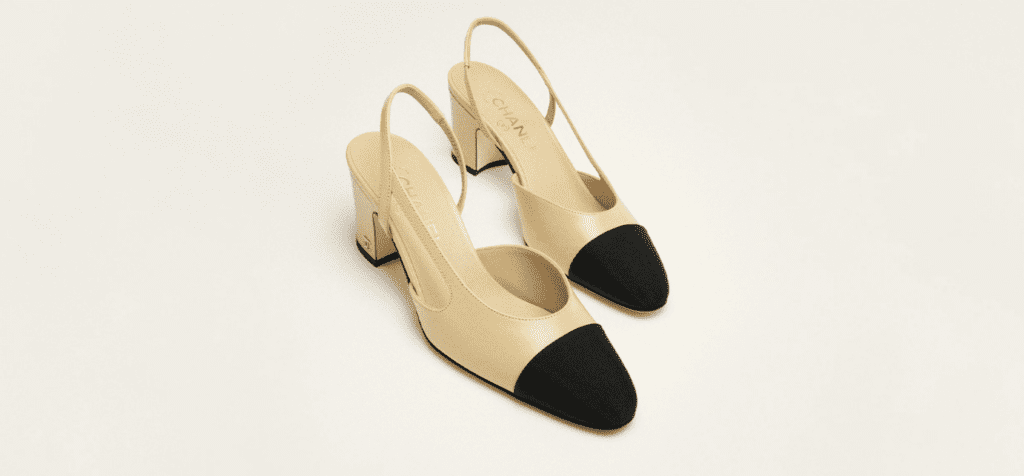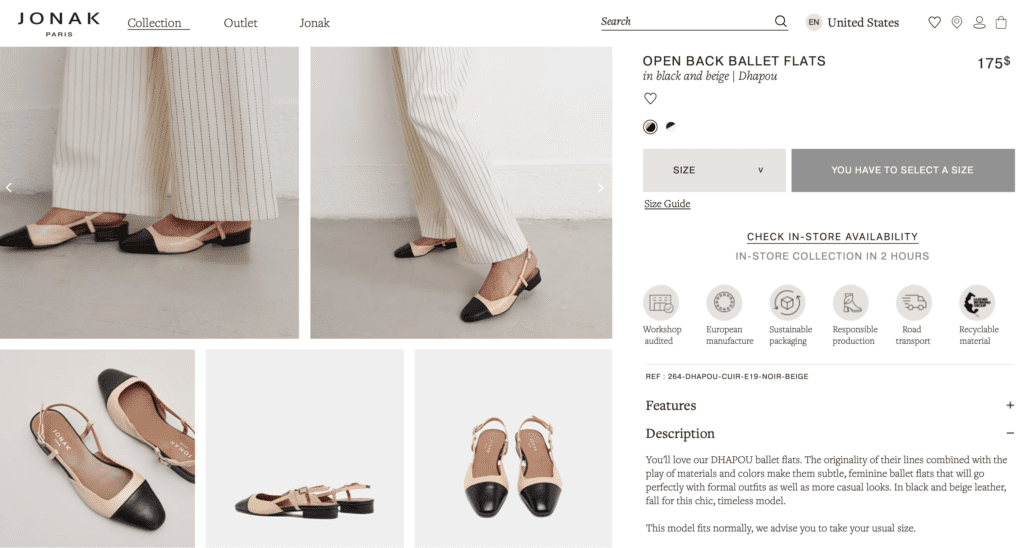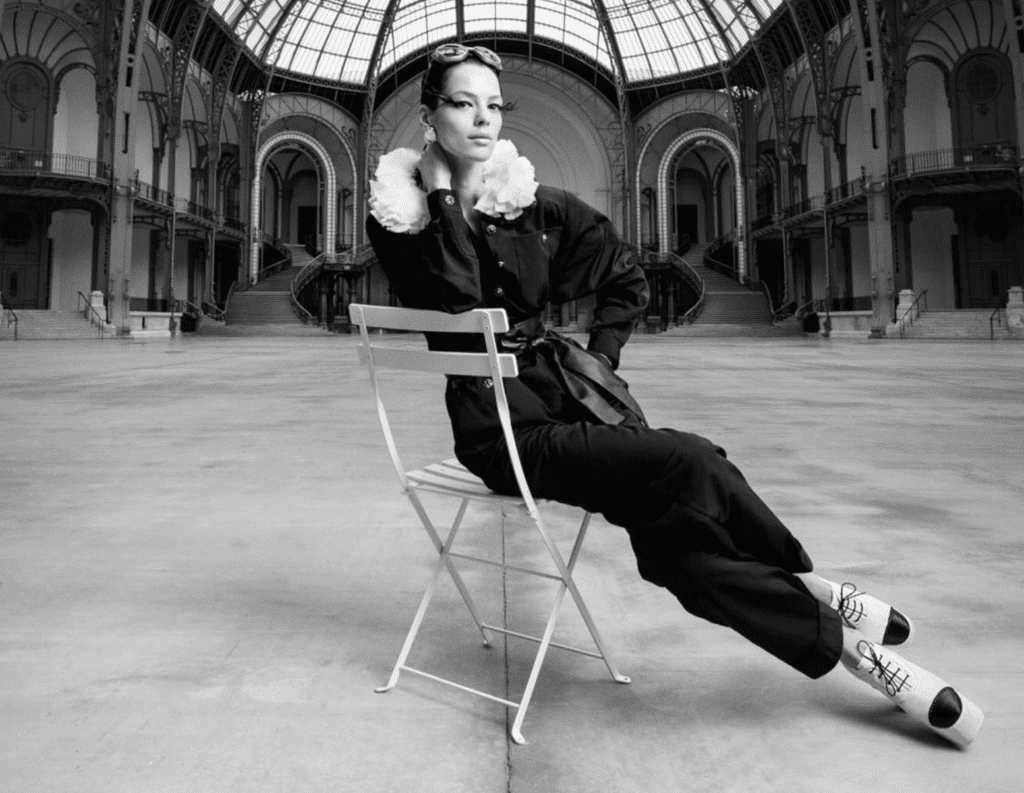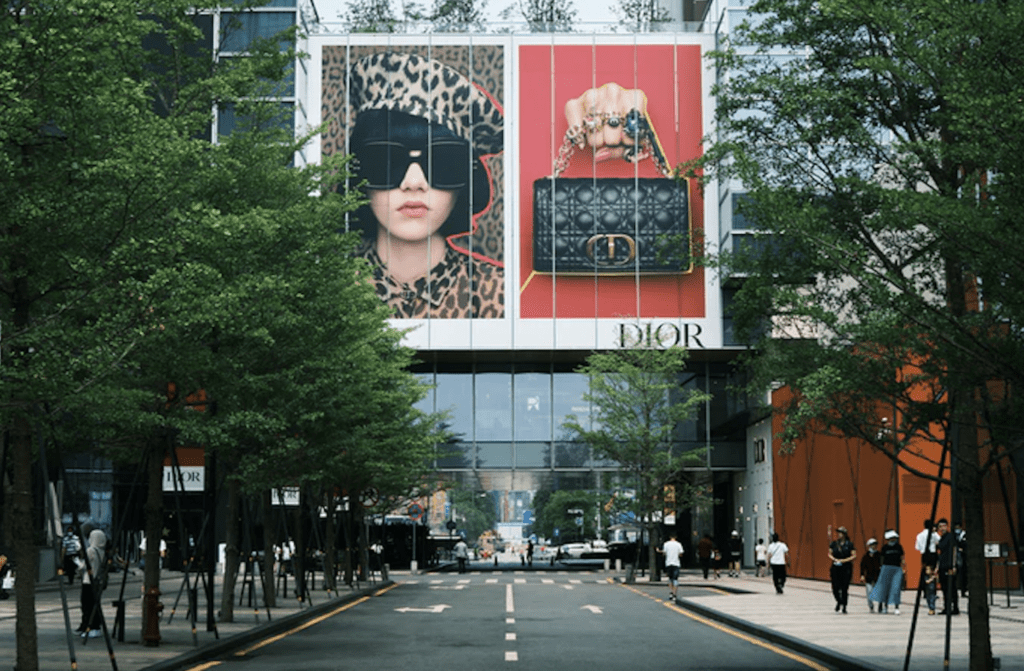A French court of appeals has cracked down on a footwear brand’s attempt to piggyback on the fame of Chanel by way of a nearly €200,000 damages award. In a recently-issued decision, the Paris Court of Appeals ordered French shoemaker Jonak to pay €150,000 in economic damages – and an additional €30,000 in moral damages – to Chanel for unfairly profiting off of the appeal of the famous luxury brand. The court’s decision comes amid a years-long battle between Chanel and Jonak, with Chanel filing suit against the footwear company in Paris in late 2020 over its two-tone slingbacks and sandals, which Chanel alleged too-closely resemble its own beige-and-black shoe designs, thereby, causing confusion among consumers and enabling Jonak to unfairly profit from demand for Chanel designs, which was estimated to result in damages of up to €1.8 million.
A Little Background: The case got its start back in December 2020 when Chanel waged parasitism claims against Jonak before the Paris Commercial Court. Chanel alleged that it had sent Jonak a cease-and-desist letter in May 2020, but the company continued to sell its allegedly infringing footwear that ultimately amounted to nearly $2 million in economic damages. Siding in part with 60-year-old Jonak in a decision in October 2022, the Paris Commercial Court dismissed or modified a number of Chanel’s initial claims, prompting Chanel to lodge an appeal with the Paris Court of Appeals.

Parasitism and Brand Image Protection
Siding with Chanel in its on October 16 decision, the Paris Court of Appeals started by stating that Chanel’s two-tone beige-and-black slingback, which was created in 1957, has been a “recurring” items in its collections, as well as its advertising, enabling it to become “emblematic” of the Chanel brand. In furtherance of its parasitism claim, Chanel argued – and the court agreed – that due to its longstanding use of the design, as well as its substantial investment in promoting it across campaigns, collections, etc., the beige-and-black footwear design has become an instantly recognizable “signature” that represents its brand, as well as a unique economic asset.
Reflecting on Chanel’s claim that Jonak offered up lookalike footwear in an effort to bank on the appeal of its designs, the court considered evidence presented by Chanel, including a survey that showed that a significant portion of respondents identified Jonak’s two-tone slingbacks as Chanel products or Chanel-inspired. Additionally, the court noted multiple marketing campaigns and social media posts, in which Jonak showcased its products alongside Chanel-like accessories, which it found to reinforce a perceived association with the luxury brand.
In its defense, Jonak argued (unsuccessfully) that the markets in which it and Chanel operate are different. Specifically, Jonak claimed that its products are intended for the affordable fashion market, whereas Chanel exists in the luxury segment. The company also asserted that Chanel does not maintain a monopoly on two-two designs, which have been popular in the footwear industry since the 19th century, and that it has independently used the two-tone beige-and-black style on its own offerings for years.

In finding for Chanel, the court focused on “parasitism,” a French legal doctrine that prohibits the exploitation of another’s established brand identity and reputation to gain an economic advantage. (In the U.S., parasitism is covered through causes of action, such as unfair competition, trademark infringement/dilution, and false association/false advertising). The appellate court held that Jonak’s footwear constituted parasitism because they unfairly capitalized on Chanel’s designs and brand image.
Cease Sales, Remove Social Media Content & Destroy Products
With the foregoing in mind, the court ordered Jonak to pay €150,000 in economic damages to Chanel, based on the profits that it likely garnered by benefiting from Chanel’s established brand equity. At the same time, the court held at Jonak must pay moral damages of €30,000, a sum that reflects the symbolic loss Chanel endured due to the unauthorized association with its designs.
In addition to damages, the court ordered Jonak to cease production, distribution, and the sale of specific models identified as imitations of Chanel’s designs, namely its DHAPOU, DHAPOP, and IVANA models, which are frequently marketed in beige-and-black combinations similar to Chanel’s two-tone aesthetic. This sales ban applies to all physical retail locations, online platforms and other distribution channels where Jonak products are available, the court stated.
And beyond banning any future sales of the infringing footwear, the court addressed Jonak’s digital marketing practices, requiring the company to remove any social media content that could suggest an affiliation with Chanel. This includes posts across popular social media platforms like Instagram and TikTok, where Jonak had previously promoted its two-tone products in a manner that the court found could lead to consumer confusion and brand dilution.
Still yet, the court ordered the physical destruction of Jonak’s remaining inventory of the infringing models. Jonak must withdraw unsold products from all retail outlets, including any third-party or affiliate retailers, and provide proof of their destruction to comply with its ruling. To enforce these directives, the court imposed a penalty on Jonak, ordering a €1,000 daily fine for each day it fails to complete these actions within the 30-day deadline set by the court.
The Parting Question is … Will Chanel be empowered by its win and pursue any of the other companies that are offering up similar footwear designs? Chances are, counsel for Chanel will not roll the dice in the U.S. (where companies like Veronica Beard, Sam Edelman, Margaux, Tuckernuck, Tory Burch, Aldo, and Stuart Weitzman, among many others, are offering up black-and-beige cap-toe slingbacks), where any efforts to claim rights in cap-toe design would almost certainly be met with significant pushback on some of the same grounds as those raised by Jonak, namely, the design is widely used by footwear companies, and thus, is not an indicator of source of the Chanel brand. (Laches and acquiescence also seem like merited defenses in light of the fact that companies like Marc Fisher have been offering up lookalike designs for years.) Against that background, any future actions will most likely play out in France.
The case is Chanel v. Kilma Jonak, 22/191513 (Paris Court of Appeals)














